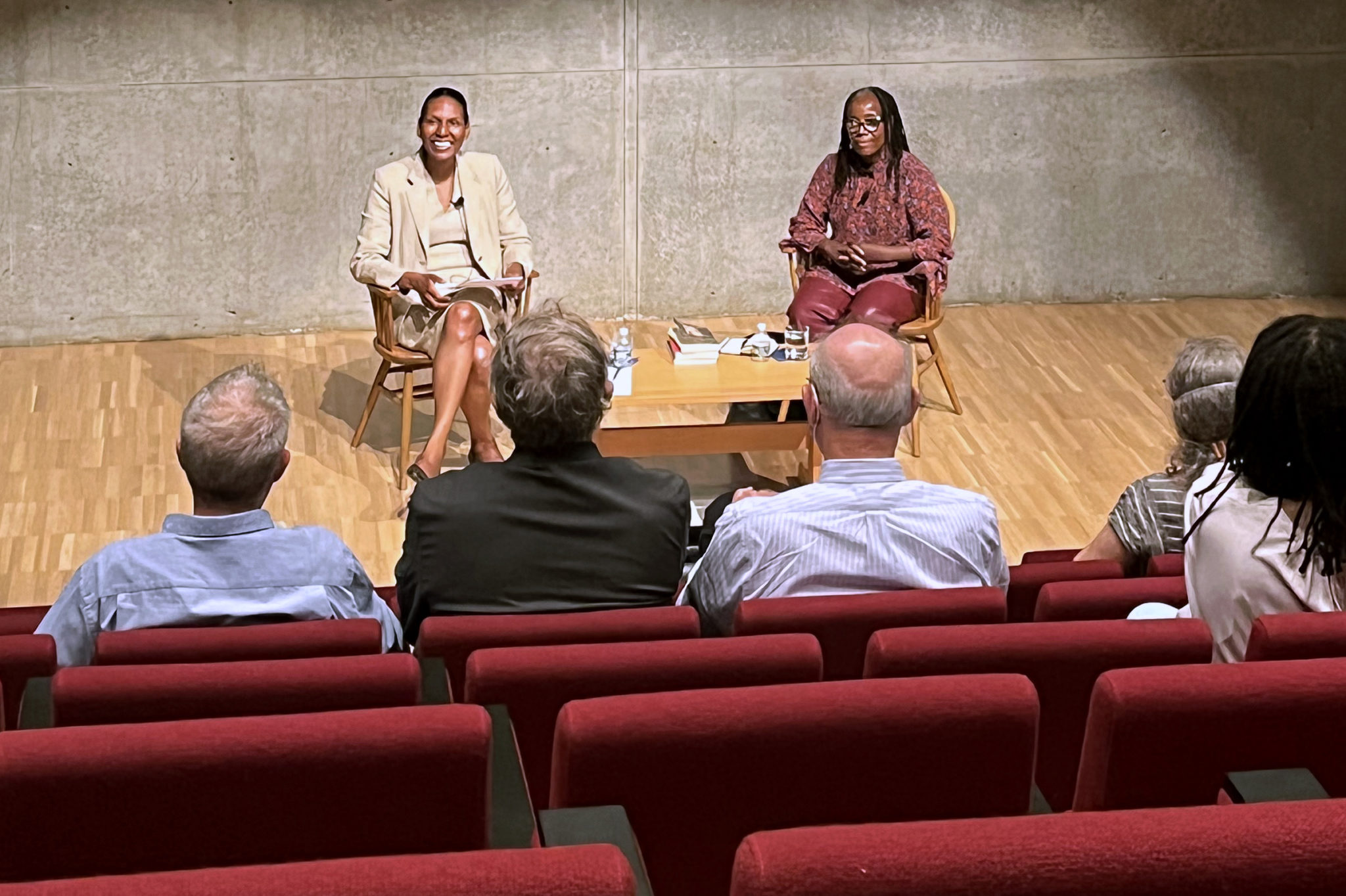Yale hosts 10th Windham-Campbell Literary Festival
Natasha Trethewey, a United States Poet Laureate, headlined the festival's first in-person iteration since 2019.

Miranda Jeyaretnam, Contributing Photographers
The Windham-Campbell Festival returned to campus last week, marking both the 10th anniversary of the event and the first time it has been held in person in two years.
The festival hosted events across various spots on campus from Sept. 19 to Sept. 22, celebrating the Windham-Campbell Prize Winners. In March, the eight winners of the prestigious literary award were awarded a $165,000 grant to support their writing.
The events celebrating these writers included poetry readings, dance events, book launches, lectures and film screenings, beginning with a prize ceremony and lecture by Natasha Tretheway at the Yale University Art Gallery. Tretheway was the United States Poet Laureate for two years and won the 2007 Pulitzer Prize in poetry for her acclaimed collection, Native Guard. All events were free and open to the public.
“The organization on campus is very open and promotes engagement between students and writers,” Dani Sanchez ’25 said.
There were multiple Daily Wake Up events, including free coffee, treats and tote bags or book giveaways. This past Thursday’s event at the Beinecke featured a poetry reading by Johnathan Mixon-Webster, a poet and conceptual sound artist from Flint, Michigan. Mixon-Webster was a Windham-Campbell prize winner for poetry in 2020.
Much of Mixon-Webster’s work focuses on the public health crisis in his hometown of Flint, describing the racial and economic violence through poetic lyricism. Upon receiving the PEN/Joyce Osterweil Award for Poetry, Mixon-Webster said that his main goal as a poet is to reveal what is going on in Flint. Flint was also a large focus of the poems he recited at the Daily Wake Up reading.
“I loved it, in part because he’s a conceptual sound artist, his voice has a beat, a rhythm to it and the poems are really evocative of sound and rhythm alongside imagery within his work,” Sanchez, who attended Mixon-Webster’s reading, said. “It evoked the environment of Flint and allowed the listener to confront it instead of it being a passive experience.”
Sanchez also described the benefits of the Windham-Campbell Festival returning to a free, in-person format. She praised the opportunity Yale has given students to interact with famous writers and diverse voices without any barriers to entry.
It is not just students that praise the openness of the Windham-Campbell Festival. Sunil Armith, chair of the South Asian Studies Council, told the News that the festival gives students the opportunity to directly interact with “some of the finest writers on the planet.”
As part of a partnership with the South Asian Studies Council, Armith hosted a reading of the 2022 prize winner in poetry, Zaffar Kunial, at Luce Hall on Tuesday. During the event, they launched Kunial’s new poetry collection “England’s Green.” Kunial read poems from the new collection and answered questions from both Armith and the audience. Armith described Kunial’s reading as moving, well observed and innovative in a linguistic sense.
Student engagement at the Windham-Campbell Festival was also high this year with a return to an in-person format as opposed to the virtual format of 2021 or the print format of 2020.
“I was thrilled by the turnout for the event — there were students there from right across Yale’s majors and program,” Armith wrote in an email to the News. “The students in the audience seemed thrilled to have the opportunity to ask Zaffar questions, and to get their books signed afterwards. I think the Windham Campbell festival is one of Yale’s treasures.”
Novelist and filmmaker Tsitsi Dangarembga, one of the Windham-Campbell prize recipients for Fiction, also spoke at multiple events. One was a screening of In My Father’s Village, a short film about the inheritance of trauma that Dangarembga produced in 2017.
Dangarembga also gave a lecture on Tuesday on “This Mournable Body,” published in 2018, the final book in her trilogy. Her previous novels include “Nervous Conditions” and “The Book of Not.”
“This Mournable Body” was the winner of the Windham-Campbell prize this year. The novel chronicles the life of Tambudzai, a woman from Dangarembga’s home country of Zimbabwe, during the 20th century.
“I have found that I did not set out to write about the nation-state. I set out to write about the experiences of the person in the nation-state and I found that I could not actually separate the two,” Dangarembga said at the event. “I found that the character [in the novel] is kind of a reflection of what happened in the country. That wasn’t my intention. It is something that people had pointed out to me and something that I realized I had done.”
The festival concluded on Thursday with readings from prize recipients at the Yale University Art Gallery.







